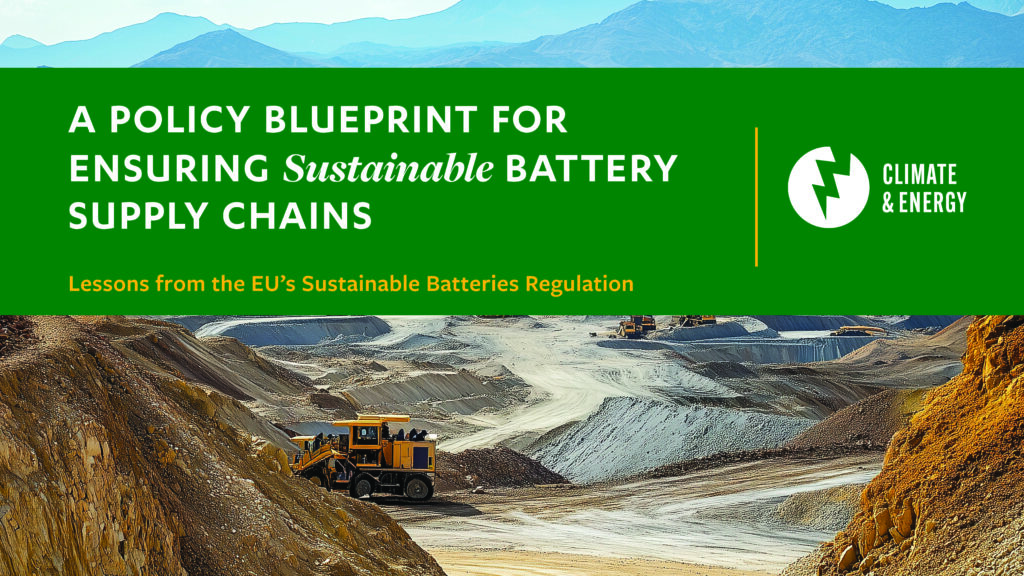What can we learn from EU’s battery regulation?
New CLEE report with model policies to ensure a responsible EV battery supply chain
From cars and trucks to buses and trains, electric vehicles are playing an increasingly vital role in decarbonizing mobility and reducing oil dependence However, this transition brings with it a significant challenge: the immense pressure on battery supply chains. As demand for EVs increases, consumer countries will need to develop and implement policies that address the environmental and social impacts of the supply chain, while ensuring a stable supply of these transition minerals.
Our new report outlines a framework for building a more responsible battery supply chain, drawing insights from the European Union’s Sustainable Batteries Regulation (2023). This regulation is designed to reduce the carbon footprint of batteries, limit the use of hazardous materials, decrease reliance on raw materials from outside the EU, and promote high rates of collection, reuse, and recycling. By advancing a circular economy, it strengthens supply chain security, supports energy resilience, and enhances the EU’s strategic autonomy.
The current battery supply chain faces several pressing challenges. Mining critical minerals can lead to human rights violations, deforestation, loss of biodiversity, and soil degradation. Refining processes, particularly in countries with lax environmental regulations, emit greenhouse gases and toxic waste. In addition, many battery materials pass through complex global supply chains, making it difficult to trace their origins and ensure responsible sourcing due to lack of transparency and traceability. Finally, end-of-life management remains a pressing issue, as current recycling rates for lithium-ion batteries are low and too many batteries end up in landfills or inefficient recycling systems.
Based on the EU’s Sustainable Batteries Regulation and the Critical Raw Materials Act, our new report offers actionable recommendations for policymakers and industry leaders worldwide to address these battery supply chain challenges. Some key recommendations for government leaders include
- Mandating transparency and traceability requirements for sourcing critical minerals, such as lithium, cobalt, graphite, nickel, through regulations and supply chain audits to ensure responsible mining practices and minimize human rights and environmental impacts
- Developing rules to minimize the environmental footprint of both domestic mineral processing and imported minerals, including limits on water usage, energy consumption, and pollutant emissions, as well as mandating the use of best available techniques.
- Implementing mandatory due diligence requirements aligned with international standards, ensuring they are integrated into supplier contracts for key transition minerals to identify and address social and environmental risks in battery production.
By drawing inspiration from the European Union’s Sustainable Batteries Regulation, other jurisdictions can adapt and tailor these policies to fit their specific challenges. A unified approach within the major consumer countries to responsible battery sourcing, processing, and recycling can reduce environmental harm and ensure a fair and ethical transition to a clean energy future.
Access the full report here: A Policy Blueprint for Ensuring Sustainable Battery Supply Chains








Reader Comments